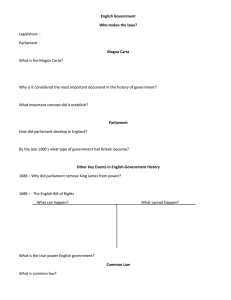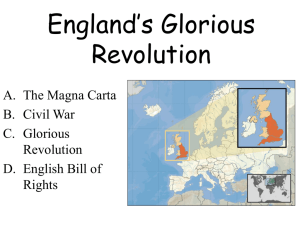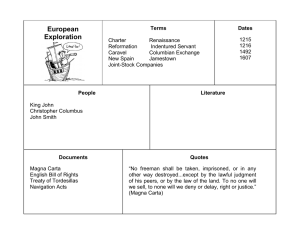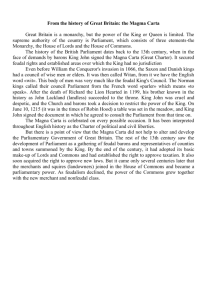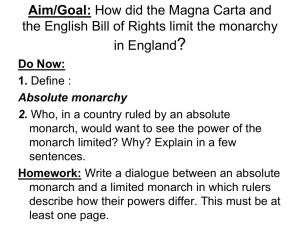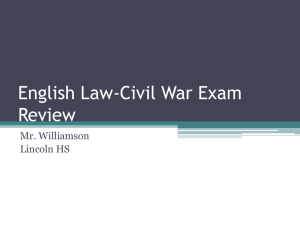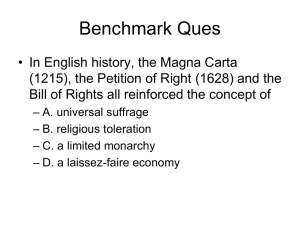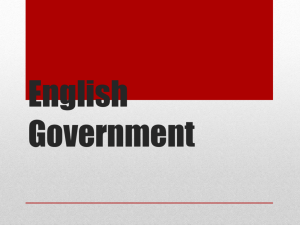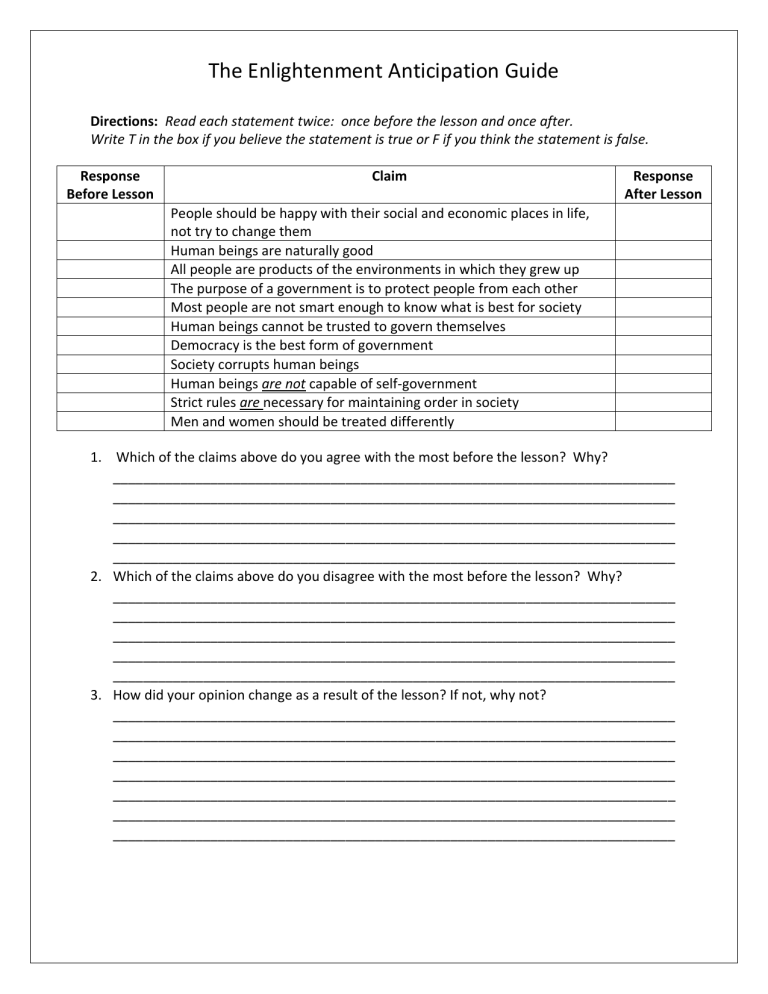
The Enlightenment Anticipation Guide Directions: Read each statement twice: once before the lesson and once after. Write T in the box if you believe the statement is true or F if you think the statement is false. Response Before Lesson Claim Response After Lesson People should be happy with their social and economic places in life, not try to change them Human beings are naturally good All people are products of the environments in which they grew up The purpose of a government is to protect people from each other Most people are not smart enough to know what is best for society Human beings cannot be trusted to govern themselves Democracy is the best form of government Society corrupts human beings Human beings are not capable of self-government Strict rules are necessary for maintaining order in society Men and women should be treated differently 1. Which of the claims above do you agree with the most before the lesson? Why? ___________________________________________________________________________ ___________________________________________________________________________ ___________________________________________________________________________ ___________________________________________________________________________ ___________________________________________________________________________ 2. Which of the claims above do you disagree with the most before the lesson? Why? ___________________________________________________________________________ ___________________________________________________________________________ ___________________________________________________________________________ ___________________________________________________________________________ ___________________________________________________________________________ 3. How did your opinion change as a result of the lesson? If not, why not? ___________________________________________________________________________ ___________________________________________________________________________ ___________________________________________________________________________ ___________________________________________________________________________ ___________________________________________________________________________ ___________________________________________________________________________ ___________________________________________________________________________ Analyzing Primary Sources Directions: Read the following primary sources. Respond to each question and provide evidence from the document for each response. Evidence is an exact quote or specific description of the document. Use a highlighter or colored pencil to mark up each document. For as long as every man holdeth this right, of doing anything he liketh; so long are all men in the condition of war. But if other men will not lay down their right, as well as he, then there is no reason for anyone to divest [divest (v.) remove; cast off] himself of his: for that were to expose himself to prey…. — Thomas Hobbes, The Leviathan, 1651 According to Hobbes, why should men give up their rights? Is life so dear, or peace so sweet, as to be purchased at the price of chains and slavery? Forbid it, Almighty God! I know not what course others may take; but as for me, give me liberty or give me death! ---Patrick Henry March 23, 1775. Which man do you agree with more? Why? What rights, if any, would you give up to stay safe? Explain. Why does Patrick Henry think that this idea is unacceptable? (1) the English Church shall be free, and shall have its rights undiminished, and its liberties unimpaired. (38) In future no official shall place a man on trial upon his own unsupported statement, without producing credible witnesses to the truth of it. (39) No free man shall be seized or imprisoned, or stripped of his rights or possessions, or outlawed or exiled, or deprived of his standing in any other way, nor will we proceed with force against him, or send others to do so, except by the lawful judgment of his equals or by the law of the land. (63) IT IS ACCORDINGLY OUR WISH AND COMMAND that the English Church shall be free, and that men in our kingdom shall have and keep all these liberties, rights, and concessions, well and peaceably in their fulness and entirety for them and their heirs, of us and our heirs, in all things and all places for ever. --Magna Carta 1215 King John of England was forced by the nobility to sing the Magna Carta or Great Charter that acknowledged the rights of the nobles and limited royal power. What do provisions #38 and #39 have in common? What do provisions #1 and #63 have in common? Which of the provisions do you think is the most important? Why? Summarize the following provisions of the English Bill of Rights in your own words. 1. That the pretended power of suspending laws, or the execution of laws, by regal authority, without consent of parliament is illegal. 5. That it is the right of the subjects to petition the king, and all commitments and prosecutions for such petitioning are illegal... 1. 5. 8. That election of members of parliament ought to be free. 8. 9. That the freedom of speech,... ought not to be impeached or questioned in any court of place out of parliament. 9. Compare the Magna Carta and English Bill of Rights and discuss how these documents established limits to create a constitutional monarchy in England. How do you think these documents influenced the writers of the Declaration of Independence and the Constitution of the United States? Provide evidence (quote) from each of the documents to support your answer. Consider the following terms in your response: Absolute Monarchy, Constitutional Monarchy, Limited Government, Rule of Law, Natural Rights.
